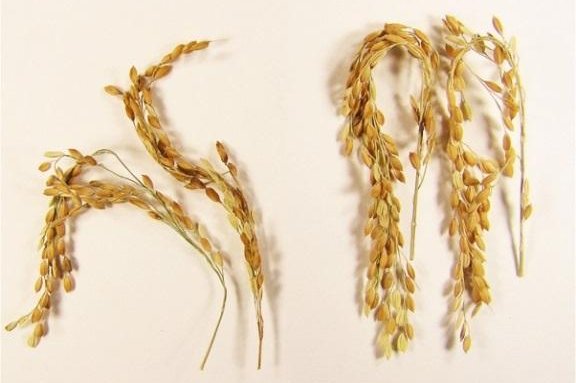The new rice strain invests more carbon in its yield and less in its roots, resulting in smaller methane emissions. Photo by Swedish University of Agricultural Sciences
RICHLAND, Wash., Nov. 24 (UPI) -- Scientists with Department of Energy's Pacific Northwest National Laboratory are being recognized for their efforts to design a more eco-friendly rice strain.
Scientists at the lab have developed a rice variety that emits nearly zero greenhouse gas during its growth and production cycles. Methane given off by the new strain is negligible.
Popular Science magazine honored the research with a 2015 "Best of What's New" award in the engineering category.
Global rice production is a surprisingly large source of global methane emissions, with rice paddies accounting for between 8 and 15 percent annually. Methane is less abundant than carbon dioxide, but is 20 times more potent in terms of its heat-trapping greenhouse gas effect.
The research was led by PNNL scientist Christer Jansson. He collaborated with scientists in China and Sweden in designing the rice strain.
The key to the rice's reduced emissions is a barley gene. Jansson and his colleagues located a gene in barley that carefully controls the plant's use of carbon. When they spliced it into the rice genome, the strain began sending more carbon into its grains and less into its roots where bacteria convert it into methane. The extra carbon in its grains also boosted the rice's yield and starch count.
"This is a win-win finding," Jansson, the director of plant sciences at DOE's Environmental Molecular Sciences Laboratory, said in a press release. "The process results in reduced methane emissions, which helps to mitigate climate change, and also results in more biomass -- more food. This dual effect is very positive."
Scientists around the globe have been working to build rice strains which can adapt to a changing climate, but this is one of the first designed to help curtail climate change.















